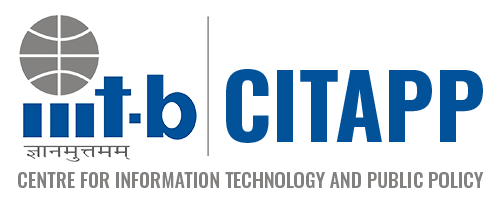Date: 12-7-2017
Description: Location: IIIT Bangalore
3.30 PM on 12 July, 2017 (Thursday)
About the talk:
In this talk, Lilly Irani explain the rise of entrepreneurial citizenship in India — a call that citizens to take up the developmental work of a liberalizing state. These calls emanate from Davos, the World Bank, and the Government of India alike; they promise that the methods of innovation – optimistic hacking and design – correct capitalism’s failings by making civil society more inclusive. This talk shows practices that emerge in response to this call through an ethnographic account of DevDesign, a design studio in India. As studio members leave corporate jobs to participate in development, they seek to make “not a living, but a life.” As they put their ideals and critiques to work, she shows how “innovation” practices invite critique and subsume political desire for the production of value. The talk draws from 14 months of ethnography over half a decade, forthcoming as a book Innovators and their Others: Entrepreneurial Citizenship in Indian Development (Princeton University Press).
Speaker Bio: Lilly Irani is an Assistant Professor of Communication & Science Studies at the University of California, San Diego. Broadly, her research investigates the cultural politics of high-tech work practices with a focus on how actors produce “innovation” cultures. She works on these questions through two sites: entrepreneurial development efforts in India and the Amazon data processing outsourcing site Mechanical Turk. She is a co-founder and maintainer of digital labor activism tool Turkopticon. Irani’s work draws on and contributes to Science and Technology Studies, Human-Computer Interaction, and South Asia studies. She draw on experiences as a Computer Scientist for 10 years as both as a source of research problems and a source of insight on how technical practices are shaped by hierarchies of value, gender, race, and the cultural and economic project called ‘modernity’. Her work has appeared at ACM SIGCHI, New Media & Society, Science, Technology & Human Values, South Atlantic Quarterly, and other venues. She has a Bachelor’s and Master’s degree in Computer Science from Stanford University, and a Ph.D. in Informatics from the University of California, Irvine.
